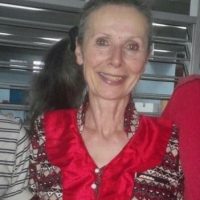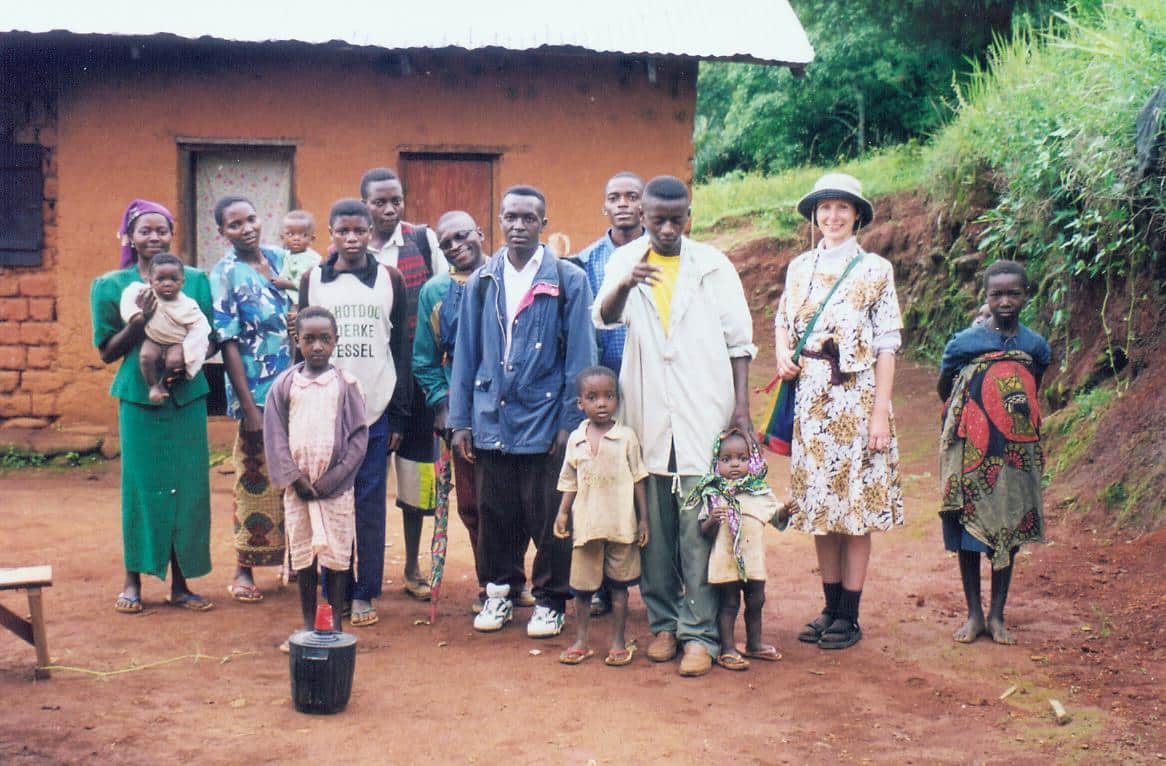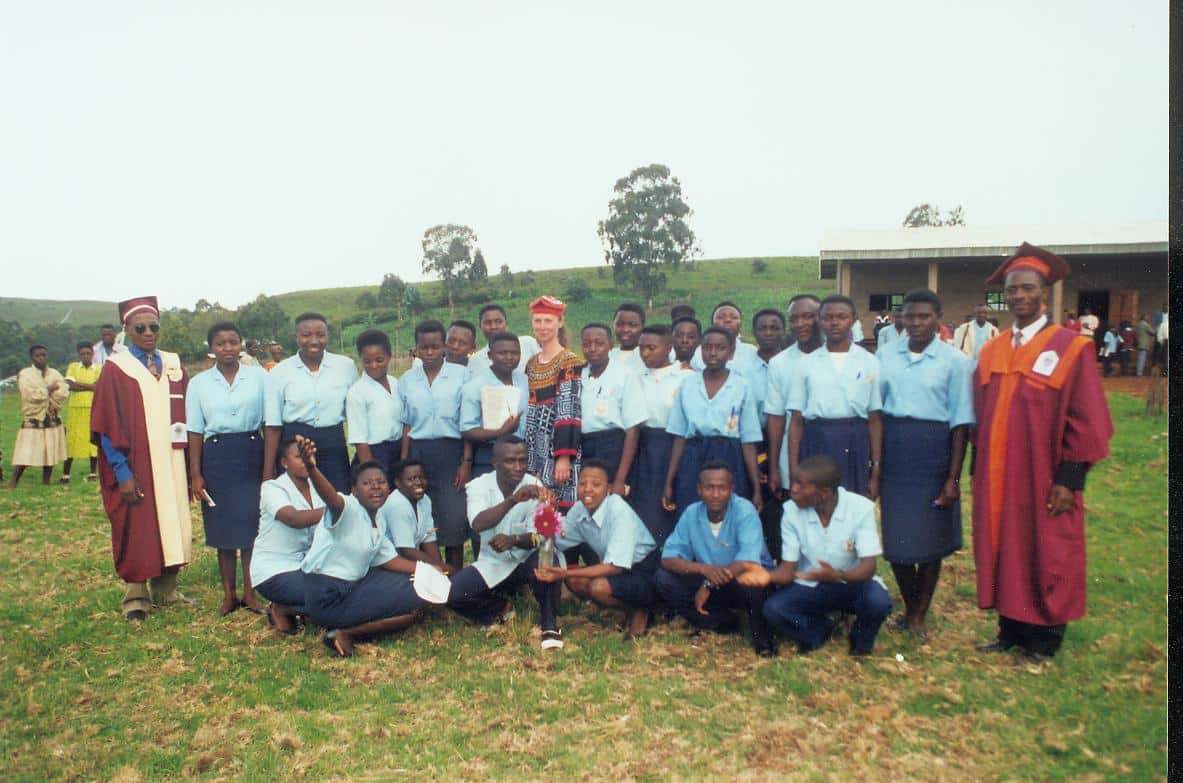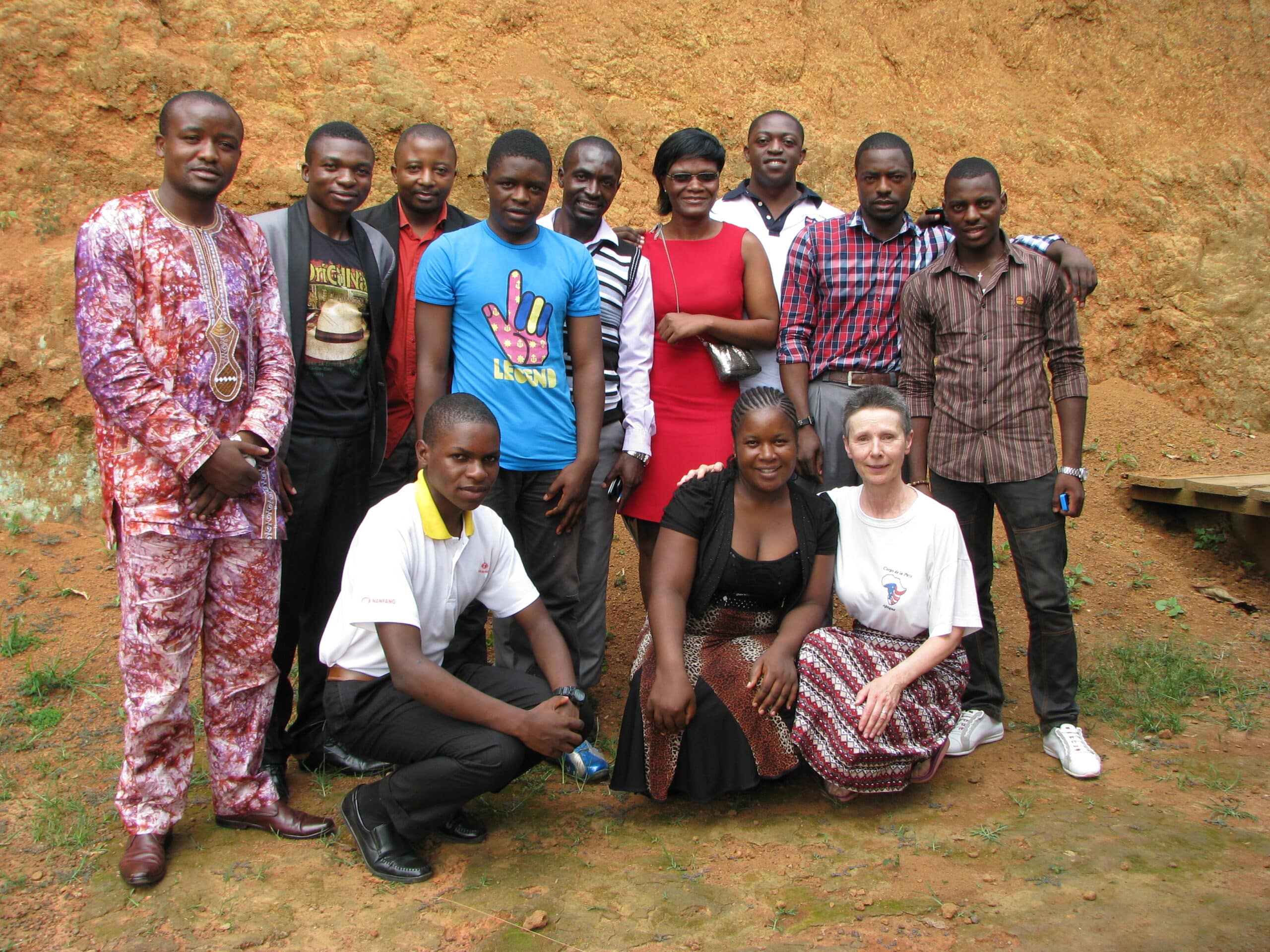I was born and grew up in Czechoslovakia, did competitive ballroom dancing, escaped in 1986 through Yugoslavia, came to the USA, learned English, earned a degree in ecology and conservation biology, became an American citizen in July 1994, got engaged to an RPCV, and in 1995—at age 42—was invited to serve as a math/science teacher in Peace Corps Cameroon.
I served in Tatum, a paradise set in majestic mountains, rugged hills, pastures, farms, valleys, waterfalls, pleasant weather, and almost no mosquitoes. I found myself in heaven on earth about 6,520 feet above sea level. This is where I found my purpose in life and joy beyond my wildest imagination.
I spent my time mostly preparing for my six secondary school biology classes, instructing 300 students each semester.
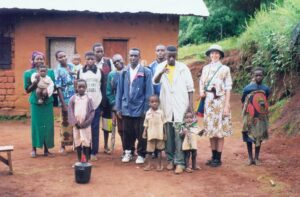
Since there was no science laboratory in my school, I took students on excursions. We trekked to a neighboring village to tour tea plantations and the tea factory. Then we visited the Teachers Training College in Tatum with its own farm, cows, rabbits, chickens, pigs, honey bees, carpentry and metal shops, and a library. The students were most impressed by composted animal and human waste generating methane gas to fuel the college’s cooking stoves.
Most of my students had never seen a lake, so we organized day trips by rented open trucks to Lake Oku near Mount Oku and to Bamendjing Reservoir, which looked like a Chinese painting with high mountains behind a misty lake and fishermen on small wooden boats. For our final trip, a friend and I rented two minivans for a visit to Limbe, where 34 students got to admire the Atlantic Ocean, visit a wildlife center, botanical gardens, oil refinery and the large seaport, Douala. For most of the students it was once-in-a-lifetime visit, with happy singing all the time, making me happy, too. The 4,000-meter Mount Cameroon was erupting, lava crossing the road we traveled after we had returned to Tatum.
The principal, a parent, some colleagues, and I prioritized the needs of the school. With the help of the Peace Corps Partnership program and Canada High Commission, two unfinished classrooms were completed, and ceilings were added to six classrooms, making students and teachers able to hear each other, especially during rainfall. The last project involved getting 600 textbooks, through the Peace Corps Gifts-In-Kind Program.
My service as a Peace Corps volunteer ended in July 1999, and I stayed a few weeks longer to visit students and meet their parents by making many daylong trips to their villages. This changed the rest of my stay in Cameroon into unimaginable joy. Besides our Cameroonian coordinator, 4-10 students (“our delegation,”) wanted to join us, also never having visited their classmates’ villages. I hoped to get across some important ideas to the parents, students and traditional rulers, and the students helped with this by preparing skits and slogans on large papers such as “To Educate a woman is to educate a nation.”
We trekked everywhere and people were surprised to see a white woman walking sometimes up to 50 km. The families were grateful for a teacher’s visit and would serve us a nice meal – perhaps spicy corn-and-bean chow, spiced potatoes boiled with onions, fu-fu (thick cornmeal porridge) with njama njama (huckleberry leaves with oil and spices). Then a parent representative and a traditional ruler would say a few words, and students – our delegation and villagers – would express appreciation. Our hosts presented gifts of mangos, pineapples, oranges, bananas, corn, potatoes, or chicken, which the students carried on their heads back to Tatum where they prepared the typical delicious meals.
In Tatum, people warmed up to me after they realized I was focused on the students and the school.
At the end of my service, the local traditional rulers of the Tatum-Nkum area gave me the title Ngwang, meaning “a coordinator of people”, and a traditional dress with the neckline embroidered with the colors of northwest regalia, a round cap with a flat top, a necklace with blue and white painted beads to symbolize peace, and a traditional bag of raffia fibers. I enjoy wearing these because they are beautiful, original and attention-getting.
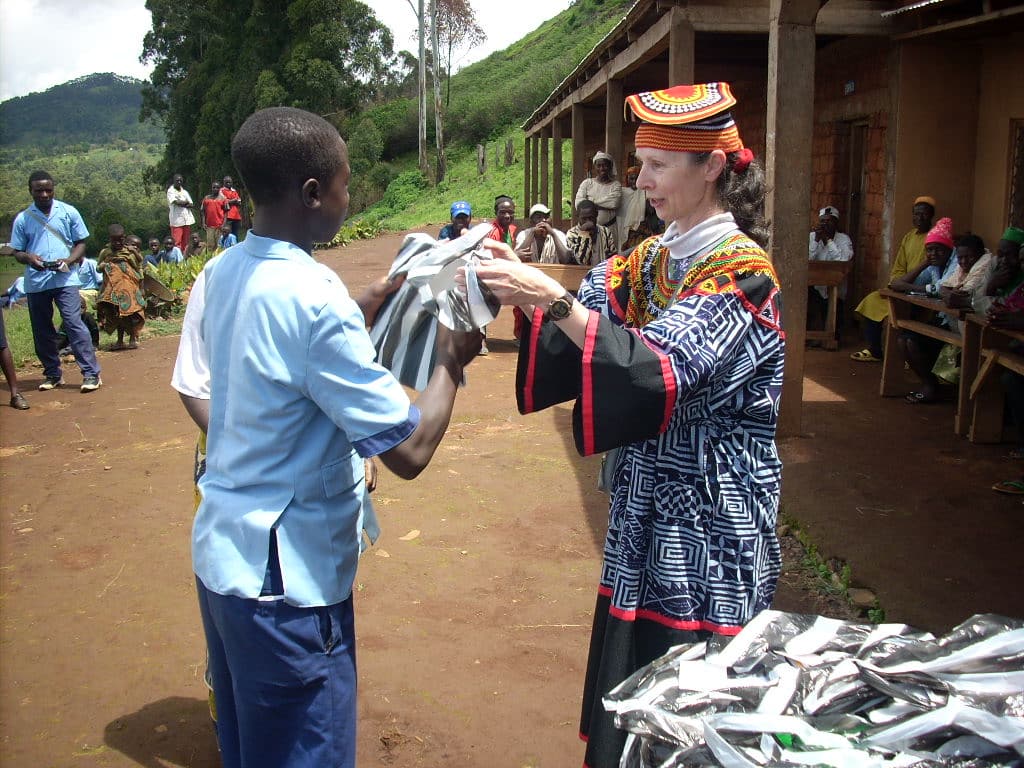
Most students came from families of small farmers who struggled to pay school fees and provide other basic school needs. I helped them with pens, pencils, notebooks and a few textbooks. The need was much greater, so after returning to the U.S., I began a campaign to raise funds and donations of school and related supplies for students in Cameroon, founding Educare-Africa in September 2000. With Cameroon-based coordinators, we deliver donated funds and supplies to Cameroon each year. Luckily, I was able to go back 19 times and stay for about two months. Recently, however, there has been unrest in the region, preventing my return. But I’ll go again, for sure. As full time volunteer president and executive director, I have found my purpose in life.

